Step 9 - Twelve Steps & Twelve Traditions - Alcoholics Anonymous - Read Along – 12 & 12
Chapter 9 (Step 9) - Twelve Steps & Twelve Traditions - Alcoholics Anonymous - 12 & 12 Read Along
If you or someone you care about is suffering from addiction, there is help available.
Alcoholics Anonymous has been successful in saving millions of lives and families.
Local meetings can be found online.
Reach out if you would like assistance.
Spiritual principles helping to live your best life without alcohol and drugs.
Recovery from unhealthy habits and creating solutions for a long happy and useful life.
Alcoholism doesn't have to be a death sentence.
Addiction can be fixed.
Step Nine
“Made direct amends to such people wherever possible, except when to do so would injure them or others.”
GOOD judgment, a careful sense of timing, courage, and
prudence—these are the qualities we shall need when we take Step Nine.
After we have made the list of people we have harmed, have reflected carefully upon each instance, and have tried to possess ourselves of the right attitude in which to proceed, we will see that the making of direct amends divides those we should approach into several classes. There will be those who ought to be dealt with just as soon as we be- come reasonably confident that we can maintain our sobriety. There will be those to whom we can make only partial restitution, lest complete disclosures do them or others more harm than good. There will be other cases where action ought to be deferred, and still others in which by the very nature of the situation we shall never be able to make direct personal contact at all.
Most of us begin making certain kinds of direct amends from the day we join Alcoholics Anonymous. The moment we tell our families that we are really going to try the pro- gram, the process has begun. In this area there are seldom any questions of timing or caution. We want to come in the door shouting the good news. After coming from our first meeting, or perhaps after we have finished reading the book “Alcoholics Anonymous,” we usually want to sit down with some member of the family and readily admit the damage we have done by our drinking. Almost always we want to go further and admit other defects that have made us hard to live with. This will be a very different occasion, and in sharp contrast with those hangover mornings when we alternated between reviling ourselves and blaming the family (and everyone else) for our troubles. At this first sit- ting, it is necessary only that we make a general admission of our defects. It may be unwise at this stage to rehash certain harrowing episodes. Good judgment will suggest that we ought to take our time. While we may be quite willing to reveal the very worst, we must be sure to remember that we cannot buy our own peace of mind at the expense of others.
Much the same approach will apply at the office or factory. We shall at once think of a few people who know all about our drinking, and who have been most affected by it. But even in these cases, we may need to use a little more discretion than we did with the family. We may not want to say anything for several weeks, or longer. First we will wish to be reasonably certain that we are on the A.A. beam. Then we are ready to go to these people, to tell them what A.A. is, and what we are trying to do. Against this back- ground we can freely admit the damage we have done and make our apologies. We can pay, or promise to pay, what- ever obligations, financial or otherwise, we owe. The generous response of most people to such quiet sincerity will often astonish us.
As soon as we begin to feel confident in our new way of life and have begun, by our behavior and example, to convince those about us that we are indeed changing for the better, it is usually safe to talk in complete frankness with those who have been seriously affected, even those who may be only a little or not at all aware of what we have done to them. The only exceptions we will make will be cases where our disclosure would cause actual harm. These conversations can begin in a casual or natural way. But if no such opportunity presents itself, at some point we will want to summon all our courage, head straight for the per- son concerned, and lay our cards on the table. We needn't wallow in excessive remorse before those we have harmed, but amends at this level should always be forthright and generous.
But all of them do require a complete willingness to make amends as fast and as far as may be possible in a given set of conditions.
Above all, we should try to be absolutely sure that we are not delaying because we are afraid. For the readiness to take the full consequences of our past acts, and to take re- sponsibility for the well-being of others at the same time, is the very spirit of Step Nine.
Substance Use Disorder SUD
Alcohol Abuse Disorder AAD
-
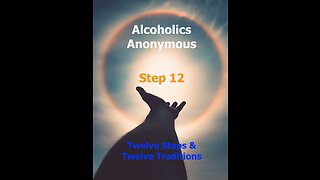 33:31
33:31
RecoveredNotCured
1 year agoStep 12 - Twelve Steps & Twelve Traditions - Alcoholics Anonymous - Read Along – 12 & 12
28 -
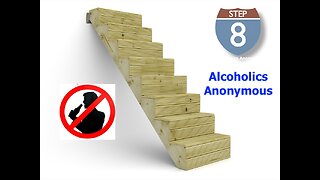 9:05
9:05
RecoveredNotCured
1 year agoStep 8 - Twelve Steps & Twelve Traditions - Alcoholics Anonymous - Read Along - 12 & 12
21 -
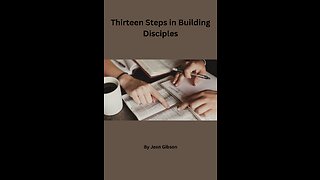 5:51
5:51
Christian Writings
1 year agoThirteen Steps in Building Disciples, Step 1: Follow Up
31 -
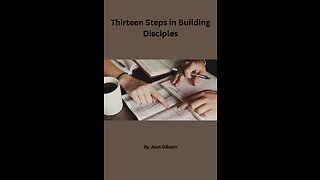 4:16
4:16
Christian Writings
1 year agoThirteen Steps in Building Disciples, Step 12: Worship
41 -
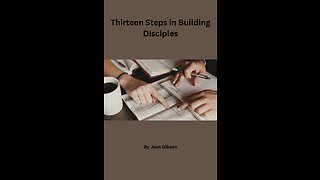 8:25
8:25
Christian Writings
1 year agoThirteen Steps in Building Disciples, Step 2: Disciple Making
28 -
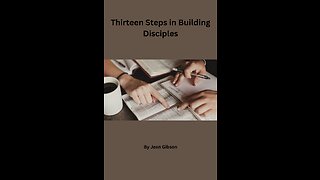 5:43
5:43
Christian Writings
1 year agoIntroduction to Thirteen Steps in Building Disciples
34 -
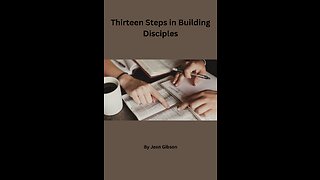 11:27
11:27
Christian Writings
1 year agoThirteen Steps in Building Disciples, Step 6: Multiplication in Discipleship
40 -
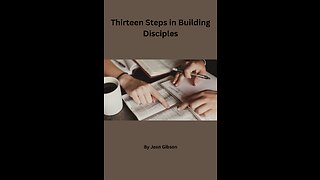 5:06
5:06
Christian Writings
1 year agoThirteen Steps in Building Disciples, Appendix B: Leadership
34 -
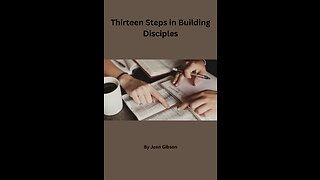 9:59
9:59
Christian Writings
1 year agoThirteen Steps in Building Disciples, Step 7: The Disciple's Commitment to Servanthood
45 -
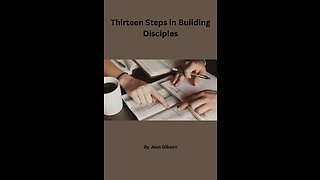 11:04
11:04
Christian Writings
1 year agoThirteen Steps in Building Disciples, Step 3: Improving Disciple Making Part 1
32